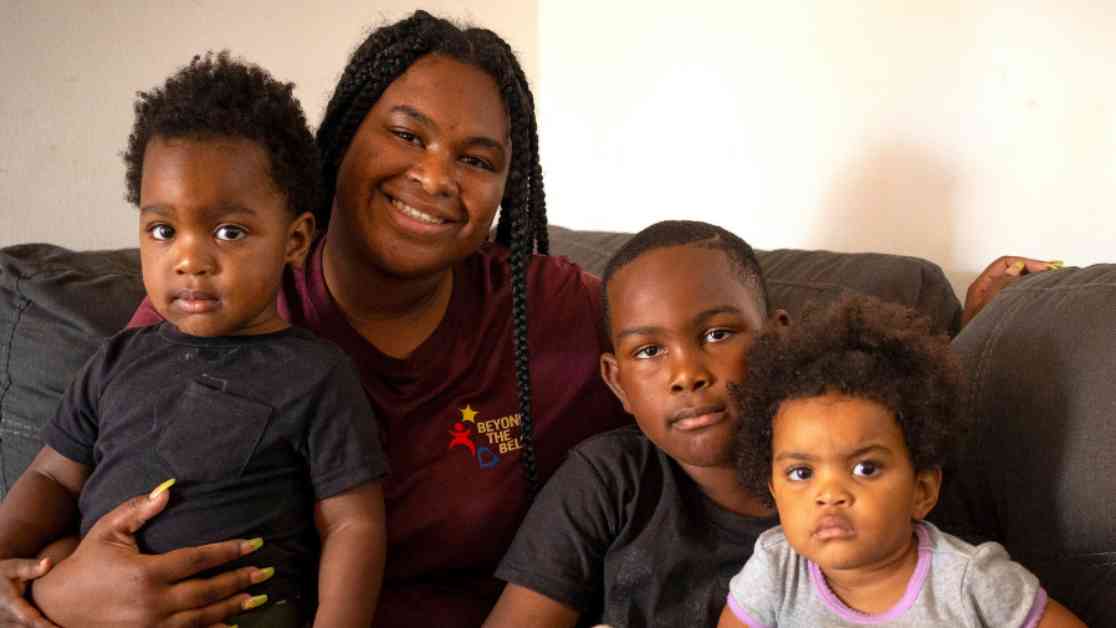Supporting Homeless Students: The Urgent Need for Compassionate Solutions
In a recent move by Gov. Gavin Newsom to clear homeless encampments on state property, the spotlight has been turned on the intersection of homelessness, youth, and the criminal justice system. This timely issue highlights the detrimental effects of housing insecurities and the failures of the criminal justice system on young individuals who are struggling to find stability and support in their lives.
Personal Experience: A Window into the Challenges Faced by Homeless Youth
As a former high school student in Los Angeles, I have firsthand experience of the impact of housing insecurities and the criminal justice system on young people. I vividly remember the day my family received an eviction notice, forcing us to leave the home we had called our own for years. This sudden upheaval left me with a sense of uncertainty about the future, as my mother and I found ourselves displaced and without a stable place to call home.
Despite our difficult circumstances, I was determined to continue attending school and pursuing my education. However, my resolve was tested when I was stopped by the police on my way to school for carrying my grandfather’s wooden cane, which I needed for a school play. The encounter with law enforcement left me feeling targeted and misunderstood, as I was subjected to questions about potential gang affiliations and treated as a threat simply for carrying a prop for a school event.
The Intersection of Homelessness and the Criminal Justice System
My story is not unique, as Black and Latino individuals are disproportionately represented in both the homeless population and the criminal justice system. The overrepresentation of Black youth in the homeless youth population in California is a stark reminder of the systemic inequalities that impact marginalized communities. Homeless youth are often criminalized for engaging in “survival behaviors,” such as loitering or sleeping in public places, which can lead to arrests and further entrenchment in the criminal justice system.
The recent Supreme Court decision in Grants Pass v. Johnson, which allows cities and counties to criminally charge individuals for sleeping in public, will have a disproportionate impact on youth and families of color. These communities, who have historically faced housing insecurity due to factors such as redlining and gentrification, are now at risk of being pushed further into a justice system that fails to provide meaningful support and resources.
The Devastating Cycle of Criminalization and Homelessness
Criminalizing homeless youth not only exacerbates their housing instability but also perpetuates a vicious cycle of incarceration, debt, and future homelessness. Studies have shown that individuals with a history of incarceration are at a significantly higher risk of experiencing homelessness, highlighting the interconnected nature of these systemic issues. A criminal record can also severely limit opportunities for employment and stability, further trapping individuals in a cycle of poverty and marginalization.
Addressing the Root Causes of Youth Homelessness
To effectively address youth homelessness and prevent the pipeline to prison, we must focus on addressing the root causes of economic instability, lack of affordable housing, and inadequate support systems for vulnerable youth. Organizations such as Safe Place for Youth and Covenant House California play a crucial role in providing housing support, education, employment resources, and mental health care for homeless and at-risk youth. Collaborative networks like the SJC Santa Monica Youth Resource Team work tirelessly to connect youth with essential services and resources to end youth homelessness in this generation.
The Path to Compassionate Solutions
As we work towards ending the youth homelessness-to-prison pipeline, it is essential for policymakers and community leaders to prioritize care and support over punitive measures. Programs like LA County’s Office of Diversion and Reentry Housing have shown success in housing individuals through diversion and development programs tailored to the unique needs of young people. By investing in evidence-based practices and resources for marginalized communities, we can create a more compassionate and equitable society for all.
Moving Forward with Compassion and Dignity
My personal journey from homelessness to higher education was made possible by the support and care of individuals who believed in my potential and provided me with the resources I needed to succeed. As we confront the complex challenges of youth homelessness and the criminal justice system, let us lead with compassion and dignity, ensuring that all our neighbors have access to the support and opportunities they need to thrive. It is time to prioritize care over cages and work towards a more just and equitable future for all.




















